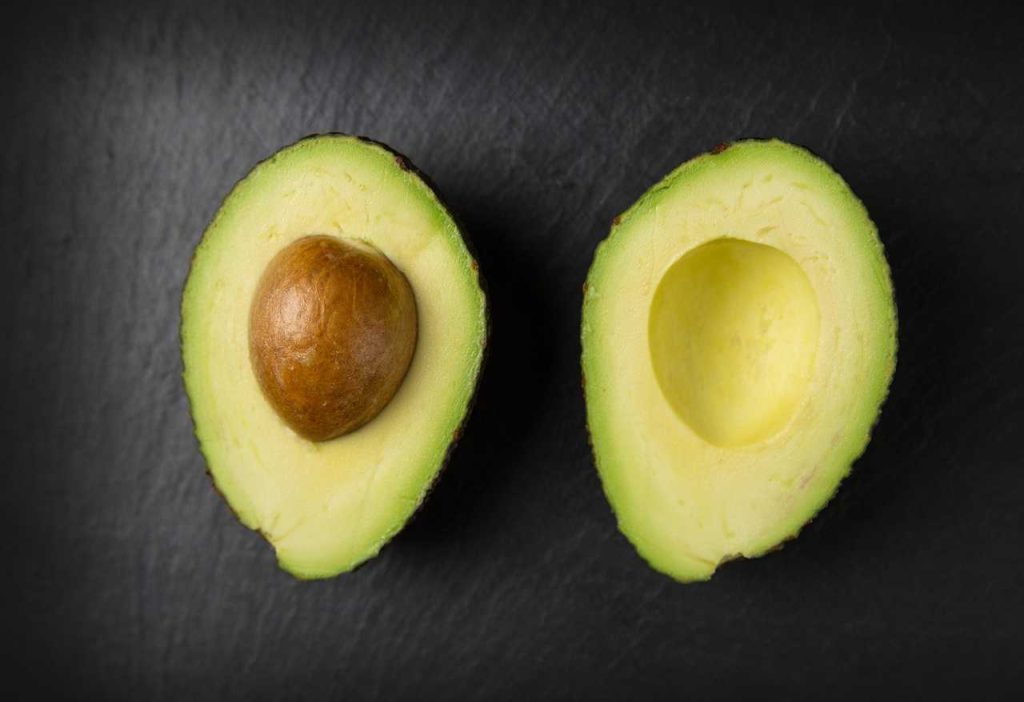Stress is an inevitable part of life, but how we manage it can significantly impact our mental and physical well-being. One of the most natural ways to reduce stress is through our diet. The foods we eat play a crucial role in influencing our mood, energy levels, and overall ability to handle stress.
Certain foods are known to lower cortisol (the stress hormone), boost serotonin (the happiness hormone), and provide essential nutrients that keep the nervous system healthy.
In this blog, we’ll dive into eight healthy foods that can help reduce stress and improve your overall health. Each food has unique properties that make it an ideal choice for combating stress and calming your mind. Let’s explore how these foods work and how you can easily incorporate them into your daily routine.
1. Dark Chocolate: A Sweet Way to Reduce Stress

Dark chocolate is more than just a treat—it’s a powerful food that can help you manage stress. Rich in antioxidants, dark chocolate helps reduce the production of stress hormones and promotes a sense of calm.
How Dark Chocolate Helps:
Dark chocolate is loaded with flavonoids, which help improve blood flow to the brain and enhance mood. It also contains compounds that stimulate the release of endorphins, which naturally boost feelings of happiness. Eating dark chocolate in moderation can lower levels of cortisol and improve your ability to cope with stress.
Nutritional Benefits:
- Magnesium: Supports muscle relaxation and stress management.
- Antioxidants: Combat oxidative stress and reduce inflammation.
- Mood Boosting: Increases serotonin, a chemical that enhances mood.
How to Include in Your Diet:
Choose dark chocolate with at least 70% cocoa content to maximize the benefits. You can eat a small square daily, sprinkle it over yogurt, or melt it and drizzle it over fruit.
2. Blueberries: Tiny Berries with Big Stress-Relief Powers
Blueberries are packed with vitamins, antioxidants, and fiber, making them a perfect food for stress relief. They’re especially rich in vitamin C and antioxidants, which help combat the effects of stress on the body.
How Blueberries Help:
The antioxidants in blueberries help neutralize free radicals that contribute to stress and anxiety. These berries also boost dopamine production, which plays a key role in maintaining good mental health. They’re also excellent for supporting cognitive function, helping you think more clearly under pressure.
Nutritional Benefits:
- Vitamin C: Reduces cortisol levels and alleviates the physical impact of stress.
- Antioxidants: Protect brain cells from stress-related damage.
- Fiber: Helps maintain steady blood sugar levels, preventing energy dips.
How to Include in Your Diet:
Enjoy blueberries as a snack, add them to smoothies, mix them into oatmeal, or sprinkle them on salads. They’re easy to incorporate into your daily meals.
3. Salmon: Omega-3s for a Calm Mind
Salmon is one of the richest sources of omega-3 fatty acids, which are known for their powerful anti-inflammatory and mood-boosting properties. Regular consumption of salmon can significantly reduce symptoms of stress and anxiety.
How Salmon Helps:
The omega-3 fatty acids in salmon (EPA and DHA) are essential for brain health and can help reduce stress hormones like cortisol. These fatty acids help improve mood by regulating the neurotransmitters responsible for emotional well-being, such as serotonin.
Nutritional Benefits:
- Omega-3 Fatty Acids: Reduce inflammation, promote brain health, and improve mood stability.
- Vitamin D: Supports serotonin production, reducing anxiety and depression.
- Protein: Stabilizes blood sugar and provides lasting energy.
How to Include in Your Diet:
Grill, bake, or pan-sear salmon for a stress-relieving meal. You can also use salmon in salads, wraps, or as a topping for whole grain toast. Smoked salmon is another tasty option for a quick snack.
4. Avocados: The Creamy Stress-Buster

Avocados are a nutrient-dense food that can help reduce stress due to their rich content of healthy fats, B vitamins, and potassium. They’re great for promoting relaxation and keeping your body’s stress levels in check.
How Avocados Help:
Avocados contain B vitamins that are essential for brain health and mood regulation. These vitamins help reduce anxiety and fatigue, making it easier to cope with stressful situations. Additionally, the monounsaturated fats in avocados stabilize blood sugar levels, preventing energy crashes that can increase stress.
Nutritional Benefits:
- B Vitamins: Support brain function and reduce anxiety.
- Monounsaturated Fats: Promote heart and brain health, stabilizing mood.
- Potassium: Helps regulate blood pressure, which often rises during stressful moments.
How to Include in Your Diet:
Add avocados to salads, spread them on toast, or blend them into smoothies for a creamy, nutrient-rich boost. You can also use mashed avocado as a base for dressings and dips.
5. Nuts and Seeds: A Crunchy Way to Ease Stress
Nuts and seeds, such as almonds, walnuts, chia seeds, and flaxseeds, are excellent sources of essential nutrients that help you stay calm and focused. They’re rich in magnesium, healthy fats, and fiber, which all play a role in stress management.
How Nuts and Seeds Help:
Magnesium found in nuts and seeds helps lower cortisol levels, relax muscles, and promote restful sleep. The healthy fats in nuts and seeds also support brain health and regulate mood. Additionally, the fiber and protein they contain help keep blood sugar stable, reducing mood swings and irritability.
Nutritional Benefits:
- Magnesium: Reduces anxiety and promotes relaxation.
- Healthy Fats: Support brain health and hormone balance.
- Protein and Fiber: Provide steady energy and prevent blood sugar crashes.
How to Include in Your Diet:
Snack on a handful of nuts, sprinkle seeds over salads or yogurt, or add them to your smoothies. You can also make homemade energy bars or nut butters for a quick, stress-relieving snack.
6. Leafy Greens: Green Power for a Calm Mind
Leafy greens such as spinach, kale, and Swiss chard are nutrient powerhouses that support your body’s stress response. They’re packed with magnesium, folate, and other nutrients that promote brain health and relaxation.
How Leafy Greens Help:
Magnesium is a key mineral found in leafy greens that helps regulate your body’s stress response. It promotes relaxation by reducing muscle tension and improving sleep quality. Folate, another essential nutrient in leafy greens, boosts serotonin production, which can help you feel calmer and happier.
Nutritional Benefits:
- Magnesium: Helps regulate cortisol and promotes relaxation.
- Folate: Supports serotonin production, improving mood and reducing anxiety.
- Antioxidants: Protect the brain from oxidative stress.
How to Include in Your Diet:
Toss leafy greens into your salads, add them to smoothies, or sauté them as a side dish. You can also blend spinach or kale into soups, or try making green juices for a refreshing stress-relief beverage.
7. Oatmeal: A Comforting Food for Stress Relief
Oatmeal is a nutritious and comforting food that can help you feel calmer during stressful times. It’s a complex carbohydrate, which helps increase serotonin production, the chemical responsible for making you feel happy and relaxed.
How Oatmeal Helps:
Eating complex carbohydrates like oatmeal helps your brain produce more serotonin, a neurotransmitter that promotes calm and reduces anxiety. Oatmeal is also packed with fiber, which helps maintain steady blood sugar levels and prevents the energy dips that can lead to irritability and stress.
Nutritional Benefits:
- Complex Carbohydrates: Boost serotonin production, promoting relaxation.
- Fiber: Stabilizes blood sugar levels, preventing mood swings.
- Iron: Supports cognitive function and reduces fatigue.
How to Include in Your Diet:
Start your day with a bowl of oatmeal topped with fruits, nuts, and seeds for a healthy, stress-relieving breakfast. You can also make overnight oats or blend oats into smoothies for a quick and easy meal.
8. Green Tea: A Calming Drink for a Relaxed Mind

Green tea is a popular beverage known for its calming properties and ability to reduce stress. Rich in antioxidants and amino acids, green tea can help you relax without making you feel drowsy.
How Green Tea Helps:
Green tea contains an amino acid called L-theanine, which has been shown to promote relaxation and reduce anxiety. L-theanine works by increasing the production of calming neurotransmitters like GABA, serotonin, and dopamine. The combination of low levels of caffeine and L-theanine helps improve focus while keeping you calm.
Nutritional Benefits:
- L-theanine: Reduces stress and promotes relaxation.
- Antioxidants: Combat oxidative stress and support brain health.
- Low Caffeine: Provides a gentle energy boost without causing jitteriness.
How to Include in Your Diet:
Enjoy a cup of green tea during the day to help soothe your mind and body. You can also try matcha, a powdered form of green tea, for a more concentrated dose of antioxidants and L-theanine.
Conclusion
Incorporating these eight healthy foods into your diet can help you manage stress more effectively and improve your overall mental well-being. From the antioxidant-rich dark chocolate to the calming properties of green tea, each of these foods offers unique benefits for reducing anxiety and promoting a sense of calm. Remember, what you eat plays a crucial role in how you feel, so nourish your body with foods that support your mind and help you manage stress more efficiently.
By making these foods a regular part of your meals, you’ll be better equipped to handle the ups and downs of life while keeping your stress levels in check

